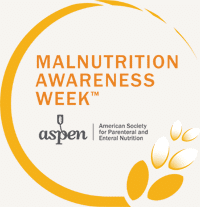Monday, September 23, 2019

September is not only Hunger Action Month, but September 23-27 is Malnutrition Awareness week.
Did you know?
- 1 out of 2 older adults are at risk for malnutrition or is already malnourished
- 16% of independent older adults are at high risk for malnutrition
- 9 million older adults cannot afford nutritious food
Malnutrition affects more individuals than just people with a low income or unable to feed themselves. It can also affect people who have the means to buy groceries, prepare meals and have a great support system!
As we age, our daily eating habits and activities change, which can affect our nutrition status. The body does not digest and metabolize food as efficiently as it used to. You can’t always prevent or treat malnutrition just by eating more food.
Here are some great tips to help prevent malnutrition:
- If you are on medications that decrease your appetite, ask your doctor if there are other options that do not have that side effect
- Eat a variety of foods that provide nutrients such as potassium, calcium, vitamin D and vitamin B12
- Consume foods with plenty of vitamins and minerals such as cow’s milk, fruits, vegetables, tuna, salmon, turkey and grains
- Engage in types of exercise that are appropriate and enjoyable for you to help maintain and build muscle mass (always ask your doctor before participating in any exercise)
More Resources on Malnutrition:
Source: Illinois Department on Aging

 September is not only Hunger Action Month, but September 23-27 is Malnutrition Awareness week.
September is not only Hunger Action Month, but September 23-27 is Malnutrition Awareness week.